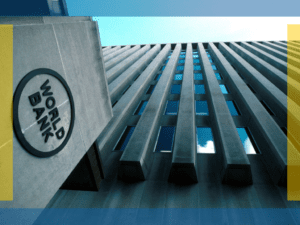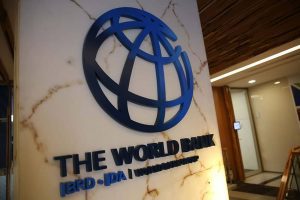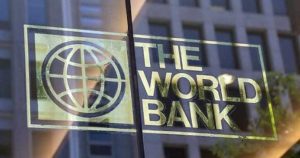
The World Bank has approved a new $90 million project to scale-up Ukraine’s health sector response to the COVID-19 pandemic. The project, Ukraine Emergency COVID-19 Response and Vaccination, will provide reimbursement of expenditures to the National Health Service of Ukraine (NHSU) for vaccination of about 10 million people.
“The World Bank has approved a new $90 million project to scale-up Ukraine’s health sector response to the COVID-19 pandemic. The project, Ukraine Emergency COVID-19 Response and Vaccination, will support the rollout of COVID-19 vaccination to priority groups among the population and strengthen the capacity of Ukraine’s health care sector to prevent, detect, and respond to the impacts of the pandemic,” the World Bank said on Tuesday.
“The project aims to help the country not only procure COVID-19 vaccines, but also improve the infrastructure for vaccine storage and logistics: this includes organizing service delivery, cost reimbursement for vaccine providers, expanding testing capacity, strengthening the IT system, and carrying out a vaccination public awareness campaign,” the World Bank said.
World Bank Regional Country Director for Eastern Europe Arup Banerji said that the project is to accelerate the pace of vaccination, while keeping a focus on people with a high risk of getting infected and those most likely to develop COVID-related complications.

Ukraine and the World Bank are discussing preparations for the launch of five joint projects, the Finance Ministry said following a video conference between minister Serhiy Marchenko and World Bank Vice President for Europe and Central Asia Anna Bjerde.
“The Finance Minister, together with the World Bank Vice President, discussed plans for cooperation for the near future – preparation for the launch of five new joint projects,” the Finance Ministry said in a release.
According to it, it is planned to submit to the bank board of directors financing for the projects on emergency response to COVID-19 and vaccination in Ukraine, on improvement of higher education in Ukraine for the sake of results, Kyiv urban mobility, on establishment of hybrid systems for production electricity in Ukrhydroenergo and additional financing of the project for access to long-term financing for Ukreximbank.
“At present, the drawdown of the facility within the portfolio of the International Bank for Reconstruction and Development (IBRD) is the highest compared to other international financial institutions – as of January 1, 2021, it amounted to $ 693.55 million, and this is 2.3 times more, than a year earlier,” the ministry said.
In addition, the parties discussed new investment projects for the development of transport infrastructure.
“This year, the implementation of two common road construction projects is coming to an end. That is why we would like to continue successful work in this direction and talk about preparing a new project for Ukravtodor,” the minister said.

The World Bank has raised its projection for Ukraine’s gross domestic product (GDP) growth in 2021 to 3.8%, while early January it estimated the prospects for recovery at 3%.
According to the World Bank’s Europe and Central Asia Economic Update, Spring 2021: Data, Digitalization, and Governance, the forecast for GDP growth in 2022 has been worsened to 3%, compared to 3.1% in January.
The World Bank said that only a partial recovery in GDP growth of 3.8% is expected in 2021, given high uncertainty regarding the rollout of the vaccine and the slow pace of structural reforms to address bottlenecks to investment and to safeguard macroeconomic sustainability. The GDP growth projection of 3.8% is also underpinned by positive base effects in agriculture and processing industry, the World Bank said.
In addition, the World Bank expects inflation this and next year at 5%, in 2023 – 5.8%.
The current account deficit in 2021 will be 1.3%, in the next two years – 2.8% and 3.3%, respectively, World Bank analysts predict.
The net inflow of foreign direct investment in 2021 should increase by 2.4%, the next year – by 2.6%, and in 2023 it is expected the growth to triple and amount to 6.2%.
At the same time, the World Bank predicts a reduction in public debt in relation to GDP from 63.2% in 2020 to 62.4% in 2021, as well as 59.7% and 57.8% in the next two years.
According to the bank’s expectations, after a 7.4% decline in 2020, Ukrainian exports will grow by 3.4% this year, and by 2% and 4.4% in 2022 and 2023, respectively. As for imports, after a decline of 11.5% last year, this indicator is projected to grow by 6.8% this year, 5% in 2022 and 4.8% in 2023.
As reported by the State Statistics Service, Ukraine’s real gross domestic product in 2020 fell by 4% after four years of growth.

The World Bank will provide Ukraine with about UAH 2.5 billion to purchase a vaccine against coronavirus (COVID-19) disease, Deputy Health Minister Svitlana Shatalova said at a press briefing in Kyiv on Thursday.
“Ukraine will receive funds for the purchase of vaccines against COVID-19. Such assistance is provided by the World Bank. About UAH 2.5 billion is planned to be allocated for the new Ukraine Emergency COVID-19 Response and Vaccination Project,” she said.
“Relevant negotiations are being held between the Board of Directors of the World Bank and the government of Ukraine since December 2020. As part of the preparation of the project, the implemented vaccination strategy will be taken into account,” Shatalova said.

The World Bank revised upward its forecast for Ukraine’s gross domestic product (GDP) growth in 2021 to 3%, while early October it estimated the prospects for recovery to be twice as modest – at 1.5%.
According to the January 2021 World Bank’s Global Economic Prospects, estimates of the fall of the Ukrainian economy this year at 5.5% and its growth by 3.1% in 2021 remained at the same level.
As reported, the Ministry for Development of Economy, Trade and Agriculture of Ukraine maintains an estimate of the fall in Ukraine’s GDP in 2020 by 4.8% at the end of the year and expects its growth by 4.6% in 2021.
The National Bank of Ukraine (NBU) had previously expected the economy to decline by 6% last year, but towards the end of the year it improved its estimates, to about 5%, predicting a recovery in 2021 by 4.2%. The updated macroeconomic forecast of the NBU will be announced on January 21.

By the end of 2020, Ukraine plans to attract a $170 million loan from the World Bank out of the $300 million provided, the Finance Ministry said on Monday.
“Today, on December 14, Ukraine and the International Bank for Reconstruction and Development signed an agreement on the second additional financing in response to the COVID-19 pandemic for the Social Safety Nets Modernization Project,” the Ministry of Finance said in a message on the website.
“The main goal is social assistance and social services for low-income families, as well as assistance to those affected by the adverse economic impact of the pandemic,” the press service said, quoting Minister Serhiy Marchenko.
As the Ministry of Finance recalled, this is the second additional financing of the specified project, the total amount of the loan for it should be $750 million.